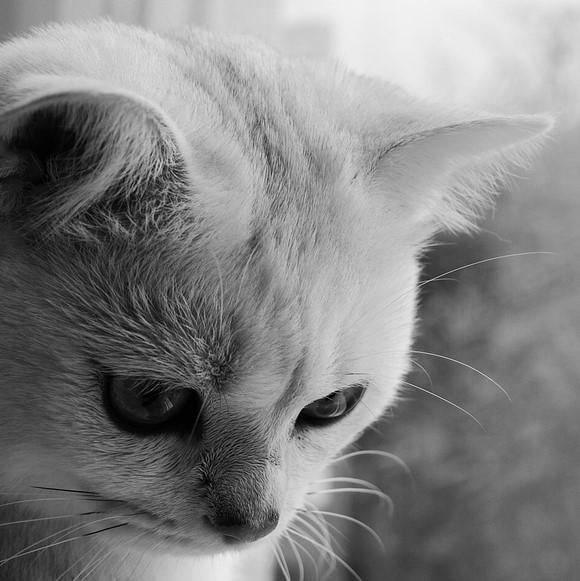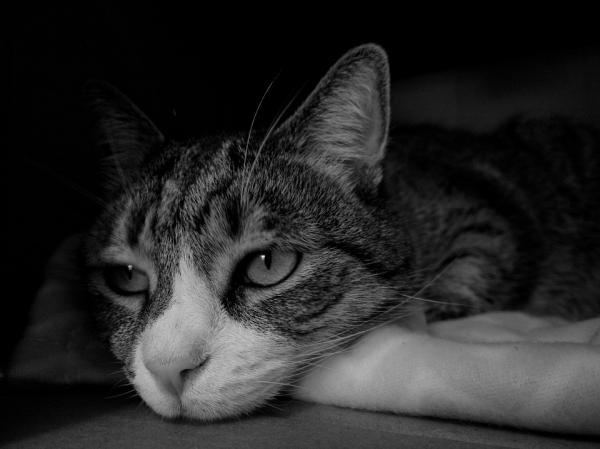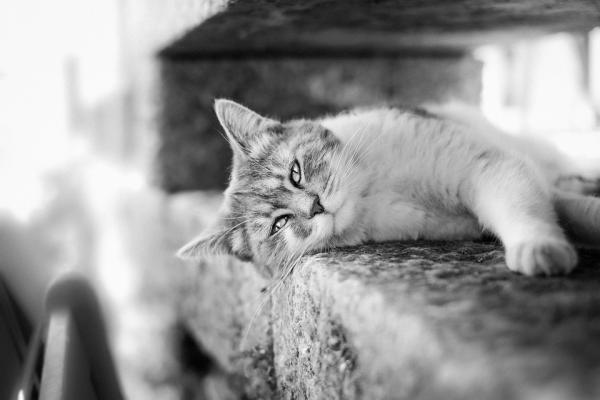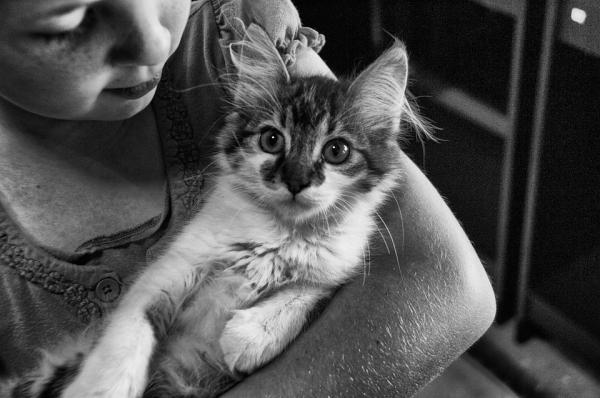
Is your cat depressed? Apathetic? Have they stopped eating? It is normal to worry when you notice your cat is sad and unwilling to play. Although, sometimes this can happen through no fault of our own. From specific symptoms, we can determine the cause that has sparked unhappiness in our feline and help them recover their habitual emotional state.
In this AnimalWised article we will address some of the most common causes of depression so you can find out why your cat is depressed and propose some tips and practical solutions to try to remedy this situation.
Keep reading to discover some expert tips from AnimalWised.
Symptoms of depression in cats
Cats, like people, are social animals susceptible to emotional problems. For that reason, knowing the character of our cat is imperative to be able to quickly detect a change in their mental state.
Even so, sometimes it is difficult to detect sadness in our beloved cats since they are usually very quiet animals. It can also happen if we have recently adopted them and they do not know your daily routine well. If you have detected any of the following symptoms, your cat may be suffering from depression or may simply be sad for some reason:
- Apathy
- Inactivity
- Lack of appetite
- Low affectivity
- Frightening attitude
- Character changes
- Prolonged sleep
- Lack of play
Although these symptoms can be indicators of depression in cats, they can also alert to the presence of a disease. That is why if you watch your cat rejecting food or with a very different attitude than usual, we recommend that you go to the vet to rule out a possible disease . Do not forget that the specialist is the only person truly qualified to diagnose depression or find out a possible problem in their state of health.

Causes of depression in cats
There are many things that can cause sadness or depression in our pet, but to detect the exact cause we must review some significant factors that may have triggered this emotional problem. Here are the most common causes of depression in cats:
- Change of residence or family: Some people assert that cats are independent and solitary animals, but this is certainly not so. Cats are sociable animals and feel very affected when a change of environment occurs or they move away from their loved ones.
- Loneliness: Although their character is not comparable to that of dogs, cats can suffer when they spend long periods of time in solitude. In these cases it is ideal to offer intelligence toys and even think about adopting another cat for them. Affection and loving displays are important to the cat.
- Bad relationship with another household member: Prolonged or recent enmity may cause our cat to be suspicious, isolated and unwilling to spend time with us.
- The arrival of a baby: The arrival of a baby is cause for happiness, but not always for everyone. If you have neglected the attentions towards your cat or you have not prepared them properly for the arrival, your cat could feel sad and displaced.
- Adopting a dog or cat: The "competition" for food, the best place on the sofa or your caresses can cause serious sadness and depression in your cat. Before the arrival of a new member it is very important to continue to pay attention to our feline.
- Disease: As we mentioned at the beginning of this article, a disease can radically change the character of our cat causing them to be apathetic, unwilling to eat and unhappy. Going to the vet is imperative whenever we detect any unusual behavior.
- Stress and anxiety: Fights, punishments, mistreatment and even lack of any of the freedoms of animal welfare can lead to high levels of stress and anxiety. It is very important to offer our pet the best care so that they feel happy to be by our side.
- Traumatic shock: An aggression or terrible experience can lead our cat to suffer depression and sadness. In these cases the ideal is to go to the specialist to provide us with customized guidelines for the particular case.

Treatment of depression in cats
Depression directly affects mental health, whatever the animal may be. Anyone: a cat, dog or human only needs support and affection to overcome their ailments and to forget all trace of said depression. Do not believe that a cat is antisocial, quite the opposite. They are tremendously affectionate animals that need to feel that they belong to a family nucleus. AnimalWised give you some tips to resolve depression gradually:
- Talk to them. Even if they do not understand you, a sweet and affectionate tone will awaken feelings of affection in them. Avoid reprimanding and punishing them and give them the best care.
- It is important that you spend time with your cat up close. Skin-to-skin contact stimulates their sensitivity and encourages a better relationship between you both.
- Caress and give gentle massages to your pet. Even if it seems funny or absurd, it is good therapy to improve their quality of life.
- Spend at least 30 minutes a day playing with your cat. Any option is good as long as you both participate in the game. Do not remove the toy if they have it in their mouth, take it when they stop paying attention to keep them active. Discover some proposals about the best toys for cats.
- Find a suitable distraction for those times when the cat is alone. You will find surprising intelligence games on the market that will make your cat spend whole hours finding a solution, the most popular one is definitely a kong for cats.
- Make them feel useful. If your cat catches a cockroach or brings a dead pigeon to your lap, congratulate them! We know that it is not pleasant, but nevertheless you must accept it as what it is: a gift. Find out more on AnimalWised about why cats bring dead animals home.
- Increase your cat's contact with sun and nature. Receiving rays is very beneficial to their mood and regeneration.
- If your cat has lost someone, be it a family member or another pet you can try to alleviate the pain if they are sociable. Adopt a new pet so they can keep each other company and have a best friend by their side.
- Stimulate them with catnip, though you should take precaution when you do. Some cats become tremendously excitable.
These are just some of the causes that can lead to depression in the cat but there are many more. Paying attention to our pet and offering the best care are the most effective tools to overcome this problem.

Severe cases of depression in cats
If you've followed the advice above for at least a week and you do not see a significant improvement in your cat's behavior you should consider going to a specialist .
The veterinarian can recommend the use of medicines since on the market we can find variants of antidepressants, dedicated exclusively to animals. However, these type of drugs can have serious consequences. Animals can become addicted or require treatment for life. Alternative therapies like homeopathy can also help.
It is up to you to choose what kind of treatment your pet will receive, although strictly follow the advice of the professional to prevent the problem from getting longer. Do not forget that the more rooted the behavior in the cat, the more difficult it will be to treat them.

This article is purely informative. AnimalWised does not have the authority to prescribe any veterinary treatment or create a diagnosis. We invite you to take your pet to the veterinarian if they are suffering from any condition or pain.
If you want to read similar articles to My Cat is Depressed, we recommend you visit our Mental problems category.